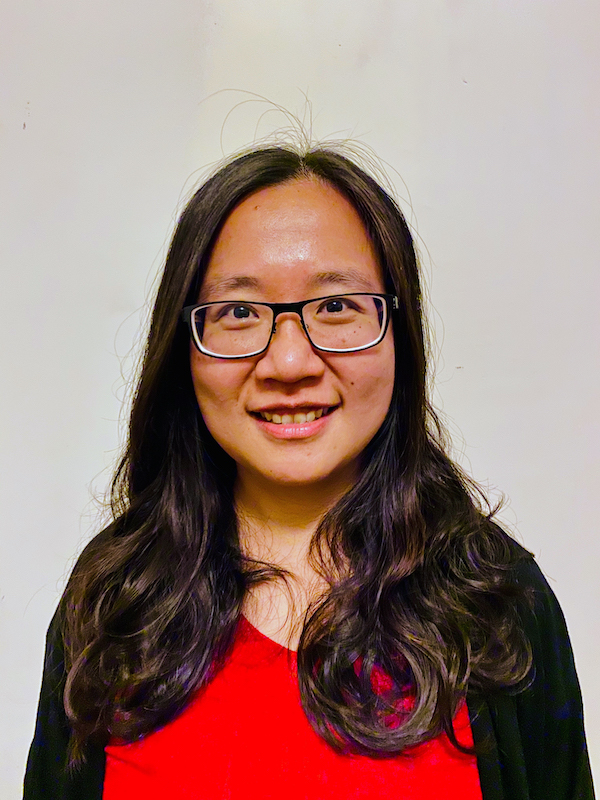Wan-Lin Lo
Assistant Professor of Microbiology and Immunology
T cells, T cell Ligand Discrimination, T cell Development, Self Tolerance

Molecular Biology Program
Biological Chemistry Program
Education
B.S. National Taiwan University School of Medicine
Ph.D. Washington University School of Medicine in St. Louis
Research
T cells initiate and regulate adaptive immune responses with remarkable sensitivity and selectivity against infected or tumor cells. Sensitivity describes the degree to which a T cell is capable of responding to an amount of stimulus, whereas selectivity describes the degree to which a T cell response is elicited by only a specific stimulus. Several clinically successful immunotherapies, including checkpoint blockade, modulate the sensitivity of T cell receptor (TCR) signaling to antigen presented by major histocompatibility complex (MHC) on target cells. However, checkpoint blocking antibodies inevitably unbalance self/non-self discrimination by the whole immune system, often leading to autoimmune responses. If we understand how T cell sensitivity is regulated at the molecular level, we will be able to engineer T cells capable of responding to a broader spectrum of weak ligands without perturbing self tolerance. That knowledge would offer insights into existing therapies, thereby guiding the development of new therapeutic modalities.
We will focus on understanding various aspects of T cell sensitivity and T cell ligand discrimination capacity. The overarching goal of the lab is to understand how to fine-tune T cell sensitivity and function in vivo through subtle perturbations in signaling kinetics. We will investigate the finding that T cell sensitivity can be engineered by tuning the biochemical kinetics of signaling steps, as established by my past research. We envision that, through modulating T cell sensitivity to self pMHCs, we can regulate T cell effector function to generate potent T cell responses against infections and tumors. Interaction with self pMHC augments T cell responses to infection; most neoantigens in cancer immunotherapies are derived from self-proteins. My lab will explore two molecular mechanisms to fine-tune T cell sensitivity and function:
- How would modulating kinetic proofreading affect T cell behavior and function in vivo? We recently identified a mutation, G135D, in LAT (an adaptor protein that amplifies TCR signaling) that can function as a “sensitivity switch” to enhance T cell responses to self peptide and weak ligand stimuli. We will examine the influences of G135D-mediated enhanced T cell sensitivity on the onset of autoimmune diseases and on T cell responses against infection and tumors.
- Can cysteine sulfenylation, a reversible protein modification, also regulate T cell sensitivity and ligand discrimination by tuning the kinetic proofreading steps of TCR signaling? Cysteine sulfenylation, mediated by reactive oxygen species (ROS), has been shown to influence kinase and phosphatase activities in other cells. I will establish the sulfenylated protein profiles of individual T cell subsets and study the functional impact of sulfenylation in T cells.
We envision that our research will shed light on the delicate balance between sensitivity and specificity, which will enable us to engineer T cells that can be activated by cancer neoepitope immunization; remain active in settings with elevated ROS concentrations, such as the tumor microenvironment; and mediate superior memory T cell responses to infections. It could also facilitate the development of strategies to constrain highly sensitive T cells in the settings of autoimmune diseases or checkpoint blockade therapies. We look forward to working with young trainees who envision T cell behavior from a molecular perspective.
References
Research Articles
- Raman S. Ganti, Wan-Lin Lo, Darren B. McAffee, Jay T. Groves, Arthur Weiss, and Arup K. Chakraborty. How the T cell signaling network processes information to discriminate between self and agonist ligands. Proceedings of the National Academy of Sciences of the United States of America. 117(42):26020-26030. 2020.
- Wan-Lin Lo, Neel H. Shah, Sara A. Rubin, Weiguo Zhang, Veronika Horkova, Ian R. Fallahee, Ondrej Stepanek, Leonard I. Zon, John Kuriyan, and Arthur Weiss. Slow phosphorylation of a tyrosine residue in LAT optimizes T cell ligand discrimination. Nature Immunology. 11, 1481-1493. 2019.
- Wan-Lin Lo, Neel H. Shah, Nagib Ahsan, Veronika Horkova, Ondrej Stepanek, Arthur R. Salomon, John Kuriyan, and Arthur Weiss. Lck promotes Zap70-dependent LAT phosphorylation by bridging Zap70 to LAT. Nature Immunology. 19, 733-741, PMC6202249. 2018.
- Wan-Lin Lo, Benjamin D. Solomon, David L. Donermeyer, Chyi-Song Hsieh, and Paul M. Allen. T cell immunodominance is dictated by the positively selecting self-peptide. Elife. 3, e01457, PMC3885792. 2014.
- Wan-Lin Lo, David L. Donermeyer, and Paul M. Allen. A voltage-gated sodium channel is essential for the positive selection of CD4(+) T cells. Nature Immunology. 13, 880-887, PMC3426661. 2012.
- Wan-Lin Lo, Nathan J. Felix, James J. Walters, Henry Rohrs, Michael L. Gross, and Paul M. Allen. An endogenous peptide positively selects and augments the activation and survival of peripheral CD4+ T cells. Nature Immunology. 10, 1155-1161, PMC2764840. 2009.
Review Articles
- Francesca Alfei, Ping-Chih Ho*, Wan-Lin Lo*. DCision-making in tumors orchestrates T cell anti-tumor immunity. Oncogene. In press. 2021.
- Wan-Lin Lo and Arthur Weiss. Adapting T cell ligand discrimination via LAT. Frontiers in Immunology. 12:673196. 2021.
- Adam H. Courtney, Wan-Lin Lo, and Arthur Weiss. TCR Signaling: Mechanisms of Initiation and Propagation. Trends in Biochemical Science. 43:108-123. 2018.
- Wan-Lin Lo and Paul M. Allen. Self-peptides in TCR repertoire selection and peripheral T cell function. Current Topics in Microbiology Immunology. 373:49-67. 2014.
- Wan-Lin Lo and Paul M. Allen. Self-awareness: how self-peptide/MHC complexes are essential in the development of T cells. Molecular Immunology. 55:186-9. 2013.
